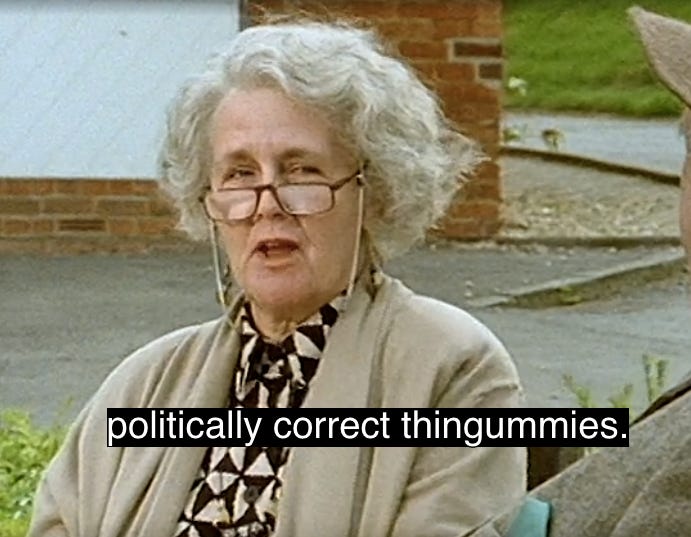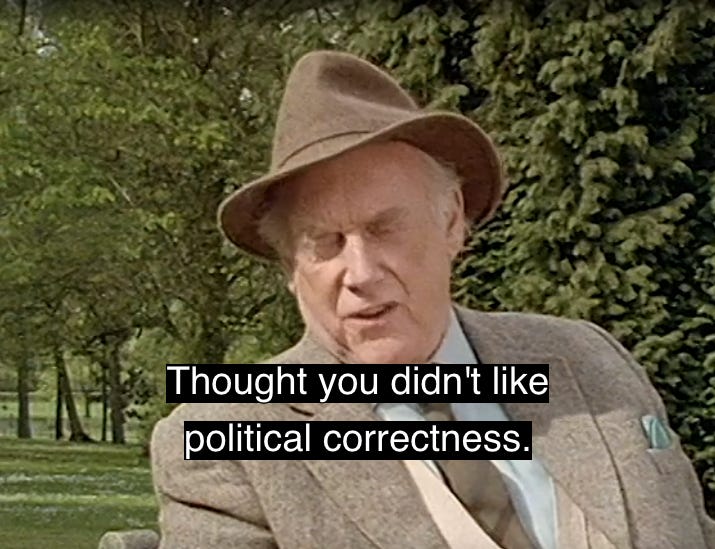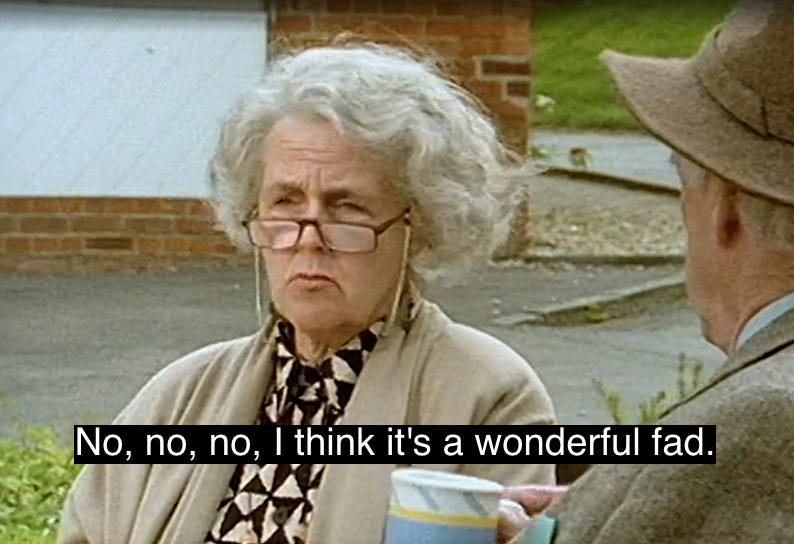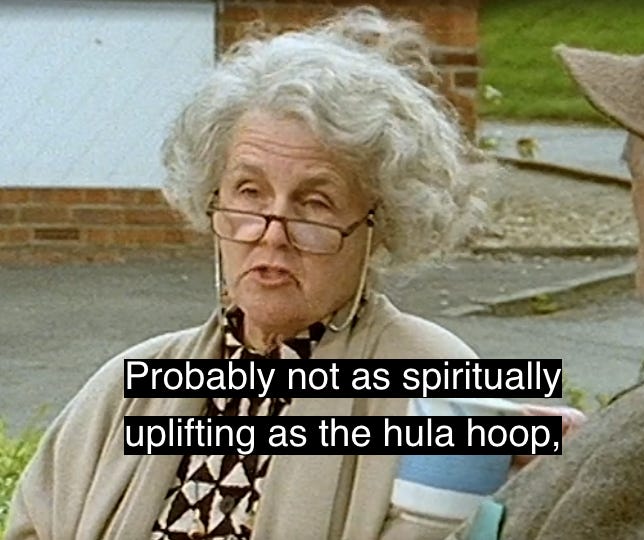
Discover more from Close-reading the reruns with Phoebe Maltz Bovy
If she were a real person alive today*, and not a fictional television character from the 1990s, Diana Trent of “Waiting For God” would be an Older British Feminist. Kind of. She’s too unique to place into a category like that, but also too much of a different era. She’s a liberal of the old school, for free speech, human rights, independent thought, etc. etc. Proudly (formerly) promiscuous but by no means a sex-positive as in objectification-positive feminist. She has a swagger that suggests a place alongside various iconic British lesbians of a certain age (does Sandi Toksvig count?) but likes men. To a point. Never married, and—spoiler for the finale—never will.
I can generally tell by where there age is relative to mine where a British feminist will stand on the trans debate that has British feminism up in arms. My age or older, and trans rights are a dire threat to women, erasing the highly specific yet everyday experiences surrounding female reproduction, as well as violence against women, at home and in public space. (Even for someone who follows these issues and more or less gets where everyone is coming from, I was having trouble wrapping my head around why a gruesome police abduction and murder of a young woman had squat to do with trans issues, as opposed to the more in-your-face question of police brutality.)
Younger, esp. much younger, and there’s no conflict between trans activism and feminism, and indeed feminism of the old school is stodgy, dorky, and centered on concerns specific to the Karens of the world. Here too, I see it and I don’t. Yes, a lot of genuine issues facing women today are too difficult to address, so there is instead (esp. in Britain?) this eternal hand-wringing over phrases like “pregnant people.” At its worst, bigotry. (Just as I do not believe the threat to feminism is fringe trans activism, nor am I persuaded that fringe feminists are the biggest threat to trans people.) But… old-school feminism isn’t obsolete. Merely being cishet does not spare women situations of all kinds, situations I might be awake enough to enumerate had I not once again been up much of the night nursing a baby.
Diana’s stance on political correctness is addressed directly numerous times in the series. The exchange following this one:
Tom : One day the thought police will get you, Diana.
Diana : Oh yes, and I will be clubbed to the cold stone floor still proclaiming my right to be as tasteless and offensive and politically incorrect as I ever was and ever will be, amen.
And yet! She complains that a “Glamorous Grannies” competition is “not only sexist” but “ageist as well.” Is she a Gen Z snowflake avant la lettre? A crusading activist on behalf of the elderly or Karen run amok? In one instance, she calls out Jenny, a black retirement home worker, for liking the royal family, holding forth on its role in the slave trade. Is Diana a… white savior? (Cue kidney discourse.)
Whatever she is, Diana is a window into 1990s political correctness, and its tendency to be… exactly the same thing as whatever is going on now. She’s liberal (as made clear from her reaction to Harvey Bains’s Thatcher lovefest) but she’s old, and what offends her as injustice is simply not what offends the younger generation.
*Rest assured Stephanie Cole, the actress who played her, is still alive, still acting, alongside Steve Pemberton, even!
Subscribe to Close-reading the reruns with Phoebe Maltz Bovy
All the clothes, interiors, and cultural politics of TV shows very much not of the moment.










